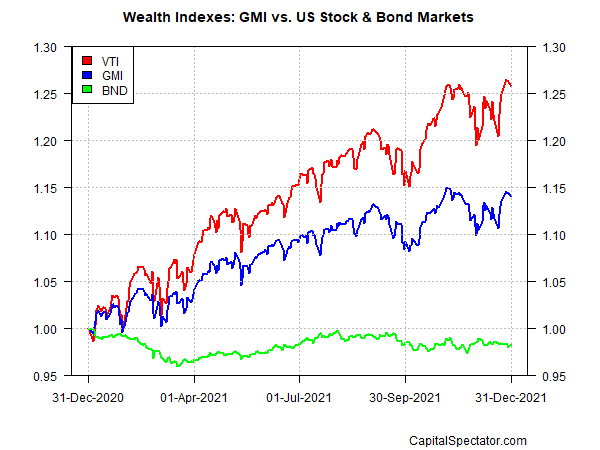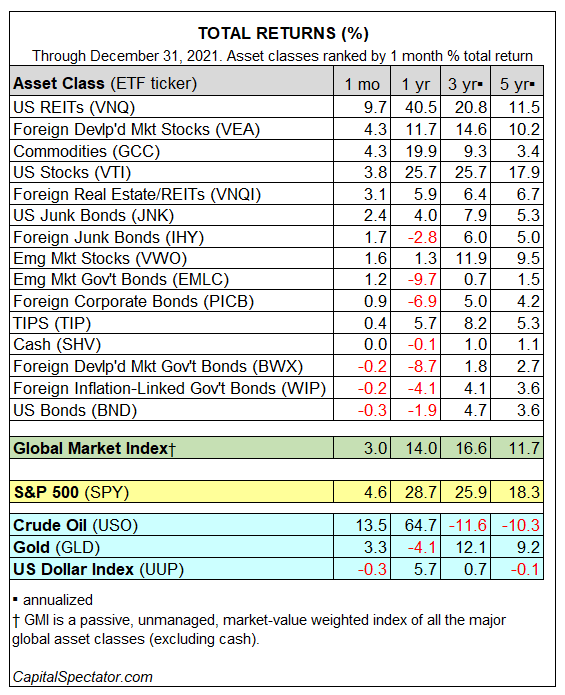US real estate shares were the big winner for the major asset classes in December and for 2021 overall, based on a set of ETFs. Although several corners of risk assets rallied last month and for the year, real estate investment trusts (REITs) left the competition in the dust.
Vanguard US Real Estate (NYSE:VNQ) surged 9.5% in December, leading a broad rebound in global markets following the previous month’s rout. Last month’s rally lifted VNQ to a record high and helped catapult the fund to first place for 2021 performance—a red-hot 40.5% total return.
Although US REITs stole the show for performance among the major asset classes last year, 2021 was still kind to risk assets generally. The second-best performer in 2021: US stocks via Vanguard Total US Stock Market (NYSE:VTI), which rallied 25.7% over the past 12 months.
Commodities had a strong year, too. The combination of a global economic recovery and a sharp runup in inflation helped lift WisdomTree Enhanced Commodity Strategy Fund (NYSE:GCC) by nearly 20% last year.
Fixed-income securities were the main losers in 2021—the biggest setback: bonds issued by governments in emerging markets. VanEck Vectors JP Morgan EM Local Currency Bond (NYSE:EMLC) tumbled 9.7% last year.
A notable exception to the downside bias for bonds in 2021 was inflation-indexed Treasuries. The iShares TIPS Bond ETF (NYSE:TIP) rose nearly 6% last year, offering a conspicuous counterpoint to the generally lower prices in bonds elsewhere.
The Global Market Index (GMI) posted a strong 14.0% total return for 2021. This unmanaged benchmark (maintained by CapitalSpectator.com), which holds all the major asset classes (except cash) in market-value weights, ended the year at slightly below a record high.
Reviewing GMI’s performance relative to US stocks and bonds over the past year reflects a robust middling performance for this multi-asset-class benchmark (blue line in the chart below). US stocks (VTI) earned nearly 26% in 2021. By contrast, a broad measure of US bonds, Vanguard Total US Bond Market (NASDAQ:BND), lost ground for the year just passed, edging down 1.9%.


